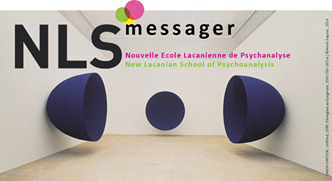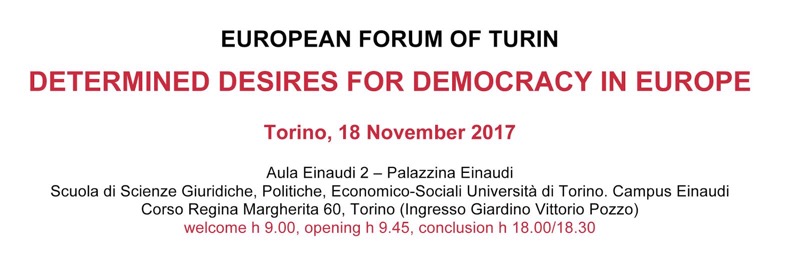

What’s Happening in Barcelona?[1]
The Difficult Pass of the New
Anna Aromí
This time the instant of seeing occurred for many at once, as well as for each one. On Sunday 1st October all the screens showed the scene. Since then, this scene has not stopped passing[2], in a loop.
What is at stake is not to let oneself be trapped in this loop. Let’s apply the analytic art of reading. What is this scene? What is seen in it?
Firstly, the horror of police brutality. For many this brutality was not new, which is part of the horror, because it reminded us of the violence of other times and the same chilled, stale traits – even the covering up of the sociopath – could be recognised in it.
One must not get confused: this was the application of force by the government, it was not a manifestation of Justice or Law, with capital letters, in so far as its ethical efficacy emanates from the recognition of a point of impossibility, of a re-presentation of S(A/). Precisely, there are acts which only obtain their legitimacy starting from the impossible treatment of the irreconcilability of that bar and the irreducible of that impossibility. Hence the fact that the greatness of a juridical act has as a correlate the authenticity of its modesty. As a magistrate told me recently: social progresses are always ahead of the law, that is why it is progress, and justice goes behind trying to order it.
Psychoanalysis has much to talk about with the field of justice: Freud or government as impossible, Lacan or the master’s discourse of the unconscious, among others. At bottom it is very simple and very difficult at the same time, as Jacques-Alain Miller said in one of the Anti-Hate Forums: it is about making politicians recognize that in politics there is a real. It’s very serious. And not just for politicians, it is especially serious for analysts.
But let’s get back to the loop scene. That Sunday police brutality, however, was new to many others. Several generations of young people – and others not so young – knew something of this via the family narrative, via their schooling, but never before had they been in something like this. They had not lived it. That Sunday, their bodies were there and they received the impact: the less fortunate received the impact of the physical blow, but all without exception received the physical impact of the images. An image can be a body event.
Rage, sadness, bewilderment, fear, stupor… affects come to the fore as an effect of such an event. These days are turning out to be a kind of forced sentimental education, in the sense of politics, for many. But it is not in affects that we are interested in reading. It does not matter because in the world of affects, as Lacan says, deception is assured. If anything, anxiety (something of a true compass) could allow each one to investigate the way of his singular desire. To read in that anxiety and its manifestations is what the analysands apply themselves to these days and, as far as I can hear, with a rigor and a courage that make me think of the praises that Freud and Lacan dedicated to neurotic subjects in analysis in times of confrontation.
Let’s go back to Sunday 1 October: one cannot say that everything starts there, of course. Like everything else, it has a story that comes from afar, even from very far away. To take only the former, it comes from a Constitution that knotted the end of the Franco regime with European modernity, leaving the rest of the (bad) state of Autonomies; it comes from a war in the only country in Europe whose governments have never reneged on National Socialism; comes from a Republic that …
But in order to read one has to cut somewhere. In this sense reading is related to castration. One reads from the cut, one reads from isolating a signifier from the chain.
To read, to speak, one does not have to look for the One. It would be a complete contradiction. One speaks or reads from the cut, that is to say, from the risk of the Other. To speak is to accept the possibility of encountering the Other, the different, in the interlocutor or in oneself. If this is not accepted, speaking is reduced to trying to convince the person in front of me of what I say, it is the stick [truncheon] by other means.
This is something that the most lucid therapists know and that is why, the most ethical ones, are sometimes anguished. Practicing psychoanalysis involves not only practicing an impossible profession but also consenting to a clinic that only operates while preserving its background of radical inhumanity: to know that there are things that do not deserve to be attempted, for example.
Third time, let’s try hard again to row in the hard bank of the loop scene: the most significant thing that was seen on Sunday was not the brutality, old and known. That’s not how I read it. What was significant was the people. There was the surprising thing. And it is. And, if I write today after trying to maintain a discreet silence all these days, it is to contribute to that this effect of surprise not be crushed. Or at least that it not be crushed too quickly, before we’ve been able to pick it up, read it, learn something from it.
First, beyond the political sensitivities of each analyst – arethere –, we would have to recognize that these surprising people are not the other pole of police brutality. It is not a‘, it is not the mirror, in this matter there are already too many mirrors. Although many people were helpless and restrained, handed in with their hands up, were beaten and some of them humiliated, their function in the scene we are trying to read cannot be reduced to sustaining the role of partenaire. It’s something different.
It has been said that all this points to a new form of democracy, to a new way of intervening in politics, to an updated continuation of the indignados of the M15, whose replicas appear filling up squares and streets… A new political subject. Miquel Bassols has recently dedicated one of his texts to this subject.
There is no doubt that there is something new in this political subject, in its forms of presentation and organization. It is the new emerging from the old, using it in order to emerge, from Buñuel to Berlanga passing through Almodóvar. I am not trivializing at all, as I explained elsewhere, this is the operation Lacan does with cinema; art is something very serious because it puts words and images to things that otherwise we would not even know they exist.
That is why it seems to me that psychoanalysis could help to localise in what is happening in Barcelona, in Catalonia, in Spain, something as modest as it is central [nuclear]: the authentic manifestation of a desire for something else.
This desire, rather than stuffing it with political labels, would not it be about reading in it a Wunsch, a push of the drive? Will I be told that there is a death drive there? Of course! But in so far as the death drive is indissoluble from life (Freud dixit). The death drive does not walk alone, otherwise the world would not exist. Now, when so much is said about division, one should remember that only in division is the life of the subject possible, division is a condition of its existence, and a condition for desire as well.
It may not make me very popular saying these things, I do not expect it to, although I also do not expect to offend anyone. I think that, as a good friend and analyst told me, in these very complicated days it is paradoxically a question of “not losing out on the best of life”; that is, life itself. The real of life.
I am convinced that the new that tries to break through such confusion is something that has not yet found its name.
Will analysts want to put something of themselves for it to find it?
Barcelona, 7 October 2017
Translated by Florencia Fernandez Coria Shanahan
|
New Lacanian School
Nous contacter : nls-messager-help@amp-nls.or
Inscription : https://amp-nls.org/page/ Le site de la NLS : https://amp-nls.org Le Blog du Congrès NLS 2017 :
http://nlscongress2017.org/fr/
Lacan Quotidien : http://www.lacanqu
|
New Lacanian School
Registration: http://www.amp-n The website of the NLS: https://amp-nls.org
Blog of the 2017 NLS Congress: http://nlscongress20
Lacan Quotidien : http://www.lacanqu |


